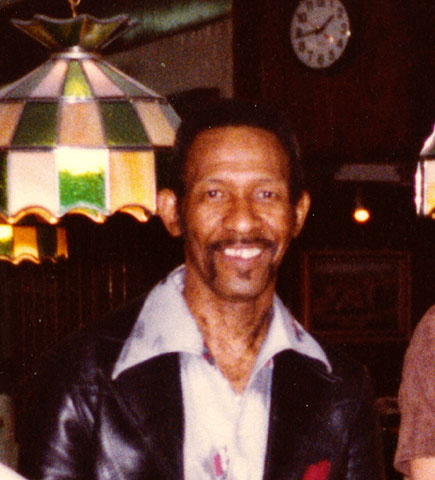Craig Fales said:My theory is the perception that blacks see themselves as still oppressed in this day and age...this is what I'm talking about...the opportunity to make it playing pool is the same for blacks as it is for anybody else...what about all those Philipinos that battled their way to success at pool...did they come from wealth? I'd place a big bet that there are a ton of nonblacks that would love to afford to go on the road and play in tounaments...
Origanally bespoken be VIProfessor:
Finally where do you get your charges of "incompitence" (LOL) from? We have been speaking about the fact that there aren't many African Americans who play tournament pool professionally. No one here has yet had the temerity or colossal gall to suggest that it doesn't have a ton of brothers that can PLAY! If that is what you are suggesting, PLEASE get some money up and we'll help you to rid yourself of that notion.
If you're suggesting I said there are no good black players I'm implying quite the contrary...there ARE alot of strong black players that can play at top 5 pro player levels...
Now if those money players would enter tournaments once in a while they would see the opportunity the same as any other player...
To compare the situation of African-American poolplayers to the Phillipines is ill-considered at best. Talk about apples and oranges! Pool is practically the national sport of the Phillipines, and the players that participate in tournaments are, for the most part, sponsored by large Filipino business interests that benefit financially from the association because of the huge market that identifies with Filipino pool players. Where does such a situation exist in the United States, let alone for African-American poolplayers?
Please be advised, however, that examination of pool in the Phillipines only erodes your argument and strengthens Mr. Lucky's. The fact is that for every Filipino player that we know about, there are hundreds of highly skilled players who are limited to money games because they don't have the financial means to obtain the visas and other particulars required to travel to the tournaments.
Furthermore, the fact is that socio-economic conditions in the Phillipines are such that even scuffling as a money player is a financially and socially acceptable option compared to unemployment and grinding poverty, much as it was in the U.S. in the early part of the last century. This is most certainly not the case in contemporary America. Any skilled and intelligent young person growing up in the U.S. today, black or white, is almost unanimously cautioned by family and friends that playing pool is a dead end street.
Ironically, I suspect that this pressure is often greater in African-American families. For Black parents that have been part of and witness to the monumental struggle to obtain even the remote semblance of a level playing field, the notion that their youngster, who has been making good grades, etc., would want to "waste his life" to play pool professionally is as abhorrent as the Devil himself. "You want to be a WHAT??!! You've got to be out of your damned mind! Our people haven't struggled all these years only so you could go and waste your life knocking balls around a table. And it doesn't even pay enough to support a family! If you go ahead with this foolishness you'll be nothing more than an embarrassment to the race! What a waste--and he was such a bright child!" (I can assure you that these are actual comments made by real African-American parents)
Finally, this will be my last response to your posts. I've decided to follow the advice in Mr. Lucky's signature.


